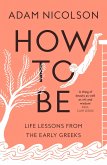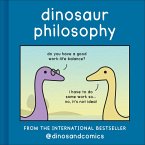Everyone is aware of the distinction between right and wrong, between what is morally good and morally bad. The distinction is made by people every day, in the home and in the school, in business and labor, in courts and police actions, in politics and in government. And yet, the attitude of many persons toward human conduct is largely amoral. People know intuitively 'that' some actions are morally good and others morally bad, but they are not sure 'why' they are so. It is therefore necessary to reaffirm the principles which underlie morality. Ethics, or moral philosophy, seeks to lay bare the natural foundations of correct living, to uncover the principles which govern morality and make individual actions to be right or wrong, and thus develop the science of right conduct.
Bitte wählen Sie Ihr Anliegen aus.
Rechnungen
Retourenschein anfordern
Bestellstatus
Storno








